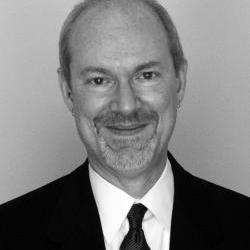The Cleveland Orchestra’s Sunday evening concert at the Blossom Music Center seemed like a mishmash on the printed page, but it turned out to be a perfect summer evening: an all-American program with great tunes (selections from Gershwin’s Porgy and Bess featuring three excellent soloists and the Blossom Festival Chorus), not too intellectually challenging (a fanfare by John Williams and excerpts from his score for Stephen Spielberg’s film Lincoln); three unaccompanied choral arrangements of African-American spirituals; and an interesting new work (a clarinet concerto by the young Spanish composer Óscar Navarro, with the orchestra’s principal clarinet Franklin Cohen as soloist). James Feddeck, the orchestra’s talented assistant conductor, led his final concert with the orchestra before the end of his residency with the orchestra. Like his revelatory performance of Orff’s Carmina Burana earlier in the 2012/13 season, Feddeck again showed his skill in bringing excitement to his performance. He has a special affinity for choral conducting, which was in strong evidence here.
John Williams’ Liberty Fanfare and three excerpts from Lincoln outdo Aaron Copland: the open, stark harmonies that evoke American folk songs; yearning melodies with just enough dissonance to be interesting; tremendous climaxes at just the right times to bring a tear to the eye. Some phrases in the Lincoln music were almost note-for-note borrowed from Copland’s A Lincoln Portrait and the Hoedown from Rodeo. Williams, who spent a decade as the conductor of the Boston Pops, is a master orchestrator, and he always makes good use of the resources at hand. It was pure emotional manipulation from beginning to end, but even a hard-hearted reviewer couldn’t resist its beguiling charm.
The find of the evening was Óscar Navarro’s 2012 II Concerto for clarinet and orchestra, a tour de force for the soloist. The requirements of the solo part pushed even the brilliant Franklin Cohen to his limits, from the bottom of the clarinet range to its very extreme top. I would not have wanted to hear many of those very high notes played by a less skilled player. The concerto is about fifteen minutes long, in three distinct sections. Throughout the concerto Mr Navarro showed an excellent ear for orchestral sound. After a slow, pensive introduction with a sinuous solo melody surrounded by bell-like percussion and celesta notes, there follows a quicker section with syncopated rhythms and a passage in which the brass players are required to clap in rhythm. A central slow section blends the clarinet in its low range into the lush orchestral texture. Mr Feddeck waited too long to move into the closing section; the mood was broken by premature applause. The concerto ends with volleys of virtuoso scales and arpeggios for the soloist. The orchestra doesn’t get a free pass; there is a lengthy section in which the strings play in unison with the clarinet at a bracingly fast tempo. It all builds to a breathless technicolor climax. The composer, born in 1981, was present for the performance to receive the acclaim of the audience.
It is rare that the Cleveland Orchestra Chorus (here in its summer incarnation, the Blossom Festival Chorus) get to perform solo a cappella works. So it was a pleasure to hear them sing three arrangements of spirituals arranged by the well-known choral conductor and arranger Moses Hogan. The choir was immaculately prepared by Lisa Wong, the orchestra’s assistant director of choruses. James Feddeck clearly was getting into conducting these imaginative, but tricky, arrangements of “My Soul’s Been Ahored in the Lord”; “This Little Light of Mine” (which also featured vocal soloists Laquita Mitchell and Eric Greene); and “I Can Tell the World”. The choral sound was clear and focused, rhythmically alive and attuned to the practices associated with singing these concert arrangements of spirituals.
The concerto closed with a thirty-minute suite of music from George and Ira Gershwin’s “American folk opera” Porgy and Bess in a concert arrangement by Robert Russell Bennett. Laquita Mitchell (soprano), Rodrick Dixon (tenor) and Eric Greene (baritone) were the excellent trio of soloists. As a concert suite, the singers did not perform only one character’s arias. Ms Mitchell sang “Summertime” (in the opera sung by Clara) and “My Man’s Gone Now” (sung by Serena) as well as the duet “Bess, You Is My Woman Now” with Mr Greene. Mr Dixon was especially appealing in Sportin’ Life’s “It Ain’t Necessarily So”, interpolating several unwritten high notes and a strong theatrical sense. The chorus again provided strong support. James Feddeck was a sensitive accompanist.
As an encore, the assembled forces performed a lushly extravagant arrangement of America the Beautiful. It wasn’t really necessary, but it added a patriotic fervor to this all-American tribute.


